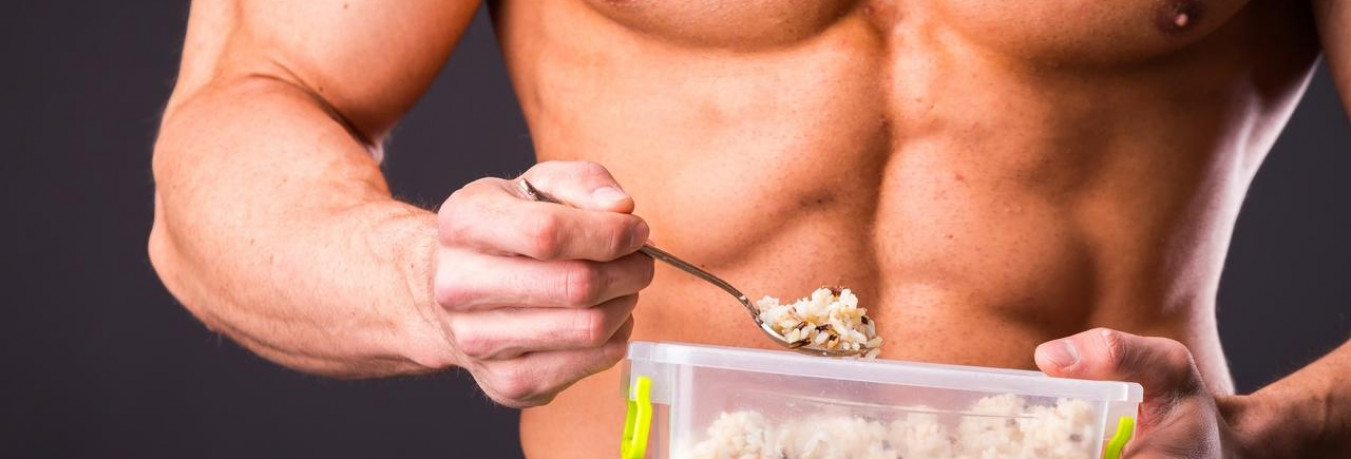
How To Properly “Clean-Bulk”
May 23, 2018 mindpump“Clean” bulking requires “clean” eating. Let’s talk about clean eating.
“Clean bulking” somewhat implies that because you’re eating healthy “clean” foods, you won’t gain much fat. As opposed to a fattening “dirty bulk”: cheeseburgers, candy, etc. all in the name of more calories.
Thing is, you don’t gain fat from eating specific foods.
You gain fat from being in a calorie surplus.
So fat can come from “clean” or “dirty” foods.
You do need to be in a calorie surplus to build muscle. That’s the point of bulking. Just don’t think “anything goes as long as it’s clean.”
Fat Gain
Gaining fat is inevitable when bulking. But it doesn’t have to be a lot.
Biggest bulking mistake: believing eating more will translate to more muscle growth. Not true.
You’ll gain the same amount of muscle eating in a 10% surplus as a 50% surplus.
You’ll just gain a lot more fat with 50% surplus. But no extra muscle.
To clean bulk without putting on too much fat, you need to know your calorie intake.
Go with 110% of your maintenance calories/total daily energy expenditure.
Don’t know either? Use this:https://tdeecalculator.net/
This should put you in a calorie surplus of a few hundred calories. Not a ton. You won’t be able to eat everything in sight. You also won’t get fat.
Clean Calories
When you’re bulking, you have more calories to play with. This makes it tempting to squeeze in some ice cream. And some pizza. And maybe a shower beer.
As long as it’s still within you calories, you’re good right?
Well, highly processed foods, the ones we label as “unhealthy” don’t contain many nutrients. Your body needs many different micronutrients to function properly. We take these in primarily through our food.
If you’re short on nutrients, your body won’t function at its best. Your hormones will be out of whack. Your gym performance will suffer.
Long-term, eating too many highly processed foods opens you up to a wide array of health risks and diseases.
So, just avoid the cancer and eat mostly unprocessed whole foods. But, you are bulking, so still work in some foods you enjoy. Just work ‘em into the calorie and macro goals. And don’t make ‘em the majority of your calories.
As cliche as it is, I like the 80/20 rule. At least 80% of your foods from nutritious sources. Use the other 20% for foods you want to enjoy without feeling guilty.
How To Set Your Macros
I’ve mentioned macros a few times. Lets get them set up.
*The below are very generalized guidelines.
First, you need to know what your calorie intake should be.
Use this guy to estimate your maintenance calories, if ya don’t know already:https://tdeecalculator.net/
Now let’s figure out how to divy up these calories.
First, calculate protein intake. When you’re bulking, you don’t need quite as much protein as when cutting.
.8 grams per pound of body weight will give you all the benefits of protein.
Next, figure out fat. For optimal hormonal function and health, around 20-25% of your daily calories should come from fat.
Now the fun part. Fill the remaining calories with carbs.
Weight Gain
When you’re bulking, you should be gaining weight. But not too much.
At the start, you’ll gain a few pounds pretty rapidly. This isn’t fat, this is your glycogen stores being replenished, and increased water retention.
After this:
Men should aim to gain 1 lb or less per week.
Women should aim to gain .5 lb or less per week.
Gaining faster than this? Drop your calories by 5%.
Not gaining strength or weight? Increase your calories by 5%.
Dirty bulk is a dirty word. Stay clean.







